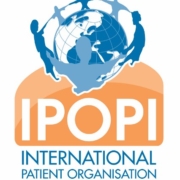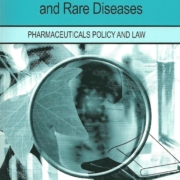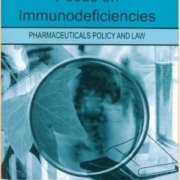The Dublin Consensus Statement 2012 on optimised supply of plasma-derived medicinal products
Key publicationsIrish Haemophilia Society, Steering Group PLUS, Dublin, Ireland
IPOPI PID Patient Needs & Outlooks Survey
Key publicationsHealth Technology Assessments (HTAs) and Rare Diseases Therapies
Key publicationsIPOPI’s recently released a co-edited issue of Pharmaceuticals Policy and Law in collaboration with Professor Jose-Luis Valverde (University of Granada, Spain) looking at Health Technology Assessments (HTAs) and Rare Diseases Therapies.
Health Technology Assessments (HTAs) in Europe and similar assessment procedures in other regions such as comparative effectiveness in the United States, are increasingly being used to measure the clinical efficacy and cost effectiveness of health technologies. Ultimately these mechanisms are also in place to control healthcare budget expenditure.
The topic of HTAs has become in recent years increasingly debated in various international fora and it has become obvious that in order for such processes to be transparent, unbiased and carried out in a robust manner, the involvement of key stakeholders such as patient organization representatives, physicians, health economists and industry representatives amongst others is absolutely necessary.
This is particularly relevant in the case of rare diseases therapies. There are indeed many hurdles that come into play when assessing rare diseases therapies such as the unavailability of Randomised Clinical Trials (RCTs) due to the small patient populations and the seemingly high cost of such therapies.
This edition of Pharmaceuticals Policy and Law seeks to provide an international overview of these challenges by outlining the viewpoints of key expert stakeholders in the field.
Focus on Immunodeficiencies
Key publicationsThis issue of the Pharmaceuticals Policy and Law series (Volume 10) published by IOS press and edited by Professor Jose-Luis Valverde, was co-edited by David Watters, IPOPI and released in February 2008. The publication brings together articles from various expert authors representing key Primary Immunodeficiencies (PID) stakeholders such as patient representatives, physicians, regulatory agencies, policy makers, industry experts, and others. The articles discuss why primary immunodeficiencies are a worldwide public health priority and intend to develop greater awareness of the main issues confronting the PID community such as the need for early diagnosis and access to optimal treatment. Published in hard copy only (currently out of stock).
Contact us
Belgium
Avenue Louise/Louizalaan 65, Bte 11
BE-1050 Brussels, Belgium
IPOPI aisbl is an international non-profit association registered in Belgium
Numéro d’entreprise
BE 0761.784.055
Email: info@ipopi.org
Tel: +32 2 790 73 66 (Belgium)





